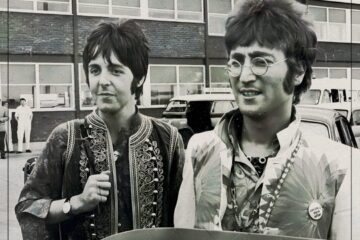After every ending, there comes a period of confusion. In an instant, an entire life can look very different. A direction a person has been following for years can suddenly be steering them wrong, forcing them to try and find the path again while grieving the time they spent travelling. It’s true of any breakup, whether it be a romance, a friendship, a business or, in John Lennon’s case, a band.
No amount of preparation or even desperation made it any easier. By the time the Beatles eventually called it quits, all four members wanted out. But after growing up together and spending their entire young lives together, dedicating everything to the group, the split was incredibly difficult. Not only was it a rough patch for their friendships, but suddenly, these four musicians had no structure outside of the confines of the group. As everyone awaited their next steps, the world was their oyster and that level of possibility was stifling.
It was a huge change which is precisely what so often leads to a kind of existential crisis. For Lennon, who had always existed as a member of the Beatles, the question of who he was now reared its head, demanding answers just as much as the question of what he would do next.
‘Watching The Wheels’ is his response to that, serving as partly a confused wonderment of ‘what’s next?’ and an answer that maybe doing nothing is the best of all.
At first, Lennon came out the gate swinging with a string of solo albums in the wake of the split. But by the mid-1970s, he seemed to have burned out. Between 1975 and 1980, he fell into a period of inactivity that people dubbed his “househusband” years. Suddenly, it felt as though Lennon was no longer interested in being a musician, an ex-Beatle, or anything beyond a husband or simply a person.
The track, which was only released posthumously after sitting in the archives for years, was Lennon’s response. It was his attempt to find understanding amidst a crisis of identity that he suffered once he decided to finally stop, take a step back, and process the years that had passed.
“When I say that I’m okay, well they look at me kinda strange / ‘Surely, you’re not happy now, you no longer play the game’”, he sings, addressing the voices that seemed to think his inactivity must be a kind of crisis. But while the voices surrounding him questioned how Lennon was coping without the “big time” fame and work of the Beatles, the singer instead seems focussed on getting exactly what they seem baffled by: a simple life.
“I’m just sitting here watching the wheels go round and round / I really love to watch them roll,” he continues, “No longer riding on the merry-go-round / I just had to let it go.”
In the song’s chorus, Lennon makes it clear that this period of stillness isn’t the existential crisis people thought it was but was, in fact, the cure to that. He’s saying that rather than desperately chasing the life and status he had and left behind in the Beatles, he wanted his existence in this new chapter to be more peaceful and serene.
Interestingly, Paul McCartney seemed to come to the same conclusion. After a period of depression following the split, Lennon’s ex-bandmate set up shop in a home studio and began crafting new music in complete privacy. Away from external pressures and expectations, his own work also seemed powered by a desire to have a calmer life now. “Want a horse, I want a sheep / I wanna get me a good night’s sleep,” he sang on RAM, his own existential contemplation of what’s next where the only answer was peace.



